You are here
African American Pioneers in Mental Health
|
[Solomon Carter Fuller] - Images from Wikipedia http://en.wikipedia.org/wiki/Solomon_Carter_Fuller |
Solomon Carter Fuller, M.D. (1872–1953) Dr. Solomon Carter Fuller was a pioneering African-American psychiatrist who made significant contributions to the study of Alzheimer's disease. He was born in Liberia, the son of a previously enslaved African who had purchased his freedom and emigrated there. He graduated from Boston University School of Medicine, which as a homeopathic institution, was open to both African-American and women students. He spent the majority of his career practicing at Westborough State Mental Hospital in Westborough, Massachusetts. While there, he performed his ground-breaking research on the physical changes to the brains of Alzheimer's patients. Dr. Fuller, was one of the first known black psychiatrists and worked alongside Dr. Alois Alzheimer, who first discovered the traits of Alzheimer's disease in 1901. |
|
[James Comer] Photo credit to Yale University; Comer School Development Program |
James P. Comer, M.D., M.P.H . Dr. Comer is the Maurice Falk Professor of Child Psychiatry at the Yale University School of Medicine's Child Study Center in New Haven, Connecticut. He is known nationally and internationally for his creation of the Comer School Development Program in 1968 within Yale University’s School of Medicine. Dr. Comer's has focused his career on improving school restructuring and has been featured in numerous newspaper, magazine and television reports, while also having several articles published in academic journals. He is a co-founder and past president of the Black Psychiatrists of America. Dr. Comer is the recipient of countless recognitions and holds over forty eight honorary degrees. In 2014, Dr. Comer received a prestigious nomination by President Barrack Obama to serve on the President's Commission on Educational Excellence for African Americans. |
|
[Paul Bertau Cornely] - Images from the History of Medicine (NLM)http://ihm.nlm.nih.gov/luna/servlet/s/9l34z9 |
Paul Bertau Cornely, M.D., DrPH (1906 -2002) Dr. Cornely was a founder of the National Student Health Association in 1939, president of the Physician's Forum in 1954, and founder and first president of the District of Columbia Public Health Association in 1962. Dr. Cornely was also the first African-America elected as President of the American Public Health Association in 1968. Dr. Cornely’s professional work focused on the development of public health initiatives aimed at reducing healthcare disparities among the chronically underserved. He also made significant contributions in the civil right movements through his efforts to desegregate health facilities across the U.S. Additionally, Dr. Cornely conducted research studies in tuberculosis, venereal diseases and scarlet fever; utilization of physicians' extenders and its effect on the cost and quality of health care; and the effects of social and cultural factors on health and health care utilization. He published over 100 scientific and popular articles. Dr. Cornely retired in 1973 as Professor Emeritus in the Department of Community Health and Family Practice of Howard University College of Medicine. Dr. Cornely passed away on February 9, 2002. |
|
[Maxie Clarence Maultsby] Images provided by Wikipedia https://upload.wikimedia.org/wikipedia/en/b/b0/Dr._Maxie_C._Maultsby.jpg |
Maxie Clarence Maultsby, Jr, M.D. (1932-2016) Dr. Maultsby was the founder of the psychotherapeutic method, rational behavioral therapy. Through his work and therapeutic method, Dr. Maultsby explored emotional and behavioral self-management. Dr. Maultsby's unique contributions include making emotional self-help a legitimate focus of scientific research and clinical use. Through rational behavior therapy he formulated a comprehensive system of cognitive-behavioral psychotherapy and counseling that incorporated, in a clinically useful way, the most recent neuropsychological facts about how the brain works in relation to emotional and behavioral self-control. The technique of cognitive-behavioral therapy and counseling that Dr. Maultsby created is the first comprehensive, yet short-term, culture and drug-free technique of psychotherapy that produces long-term therapeutic results. In addition to authoring books for health professional therapists and counselors, Dr. Maultsby has written four pioneering books that describe his method of emotional self-help, called rational self-counseling. |
|
[Freda C. Lewis-Hall] Image credit to Pfizer |
Freda C. Lewis-Hall, M.D., DFAPA Freda C. Lewis Hall earned her B.S. degree from Johns Hopkins University and her medical doctorate from Howard University in Washington, DC. Dr. Lewis-Hall is currently Pfizer's Senior Vice President & Chief Medical Officer. Trained as a psychiatrist, Dr. Lewis-Hall has held an array of leadership roles across the healthcare and pharmaceutical sectors, as well as in academia, medical research, and direct service provision. In 2010, Dr. Lewis-Hall was appointed by the Obama Administration to the inaugural Board of Governors for the Patient-Centered Outcomes Research Institute (PCORI), and in 2012 she was appointed chair of the Cures Acceleration Network Review Board and a member of the National Center for Advancing Translational Sciences (NCATS) Advisory Council of the National Institutes of Health. She also serves on the Executive Committee of the Clinical Trials Transformation Initiative and on numerous other boards, including those of Harvard Medical School, The Institute of Medicine's Forum on Drug Discovery, Development, and Translation, and Save the Children. Dr. Lewis-Hall has received several recognitions including being named as one of Savoy's Top Influential Women in Corporate America in 2012, named “Woman of the Year" by Healthcare Businesswomen's Association’s in 2011, as well as being recognized in 2010 as one of the nation’s 75 Most Powerful Women in Business by Black Enterprise Magazine and among the 25 Most Influential African-Americans in health care by Black Health Magazine. |
|
[Mamie Phipps Clark] Images provided by Psychology Feminist Voices |
Mamie Phipps Clark, Ph.D. (1917 -1983) Mamie Phipps Clark was the first African-American woman to earn a doctorate degree in psychology from Columbia University. She previously earned both her bachelor’s and master’s degrees from Howard University. Her experience in college and specifically graduate level courses helped Clark realize the shortage of psychological services available to the African American community and other minorities. Her groundbreaking research on the impact of race on child development helped end segregation and was influential in desegregation efforts including the Brown vs. Board of Education in 19554. Her dedication and passion for adequate mental health services for all prompted Dr. Clark to open her own agency to provide comprehensive psychological services to the poor, blacks, and other minority children and families. In February 1946, Dr. Clark and her husband opened the doors of “The Northside Center for Child Development” for those in the Harlem area. She worked in the center counseling and providing other psychological services from 1946 until 1979, when she retired. Although retired, Clark served on different advisory boards and was still very active within her community. Dr. Mamie Phipps Clark died on August 11, 1983. |
|
[Jocelyn Elders] Images provided by Wikipedia, http://en.wikipedia.org/w/index.php?title=Joycelyn_Elders&oldid=643608842 |
M. Joycelyn Elders, M.D. Dr. Joycelyn Elders was the first African American and second woman to be sworn in as the Surgeon General of the United States. During her tenure as Surgeon General, Dr. Elders advocated for universal health coverage, comprehensive health education, including sex education in schools. Unfortunately, Dr. Elders only held the position of Surgeon General for 15 months as she was asked to resign. Nevertheless, this does not diminish her accomplishments including the fact that Dr. Elders was the first person in the state of Arkansas to become a board certified pediatric endocrinologist, conducted an extensive amount of research on growth and diabetes in youth, as well as issues related to teen pregnancy and congenital abnormalities. Additional efforts by Dr. Elders included her extensive work to address minority health issues, particularly when she was appointed by then Governor Clinton to head the Arkansas Department of Health where she focused her efforts on improving minority health, which led her to establish an internal Office of Minority Health within the Arkansas Department of Health. Currently, Dr. Elders is professor emeritus at the University of Arkansas for Medical Sciences. |
|
[Jacki McKinney] Image provided by Mental Health America |
Jacki McKinney, M.S.W. Ms. McKinney is a survivor of trauma, addiction, homelessness and the psychiatric and criminal justice systems. She is a family advocate specializing in issues affecting African-American women and their children and is a founding member of the National People of Color Consumer/Survivor Network. Ms. McKinney has been a consultant and advisor to the Center for Mental Health Services and is well known for her moving presentations to national audiences on issues such as seclusion/restraint, intergenerational family support and minority issues in public mental health. Additionally, Ms. McKinney is a proud recipient of Mental Health America’s highest honor, the Clifford W. Beers award, presented to a consumer of mental health and/or substance abuse services who best reflects the example set by Beers in his efforts to improve conditions for, and attitudes toward, people with mental illnesses. She is also the recipient of a Lifetime Achievement Award from the Substance Abuse & Mental Health Services Administration’s Voice Awards program which was presented to her for her distinguished leadership and advocacy on behalf of trauma survivors. |
|
[Linda James Myers] Image credit to American Psychological Association |
Linda James Myers, Ph.D. Dr. Myers Linda specializes in psychology and culture; moral and spiritual identity development; healing practices and psychotherapeutic processes; and intersections of race, gender and class. Internationally known for her work in the development of a theory of Optimal Psychology; Dr. Myers has conducted trainings England, South Africa, Ghana and Jamaica. She is the author of numerous articles, book chapters, and five books, including: Understanding an Afrocentric World View: Introduction to a Optimal Psychology; and, most recently, co-editor of Re-centering Culture and Knowledge in Conflict Resolution Practice. Dr. James Myers’ Oneness model of human functioning offers a trans-disciplinary focus that builds on insights from the wisdom tradition of African deep thought, and converges with modern physics and Eastern philosophies. Her current research interests comprise the application of that model to a broad range of issues from health and education to business ethics. Dr. James Myers has received numerous honors and awards for excellence in research and scholarship, including being named Distinguished Psychologist by the Association of Black Psychologists; the Bethune/Woodson Award for Outstanding Contributions in the Development of Promotion of Black Studies from the National Council of Black Studies; Oni Award by the International Black Women’s Congress; and, the Building to Eternity Award from the Association for the Study of Classical African Civilization, among others. Professor James Myers is a recipient of the O.S.U. College of Arts and Sciences Outstanding Teaching Award, a member of the national honor societies of Phi Kappa Phi and Psi Chi, a past president of the Association of Black Psychologists, and Chairman of the Board of Directors for the National Association for the Education of African American Children with Learning Disabilities. |
Click on links below to learn more facts about the mental health of African Americans.
Mental Health America resources for African Americans:
- Bipolar Disorder and African Americans
- Depression and African Americans
- "What Is Bipolar Disorder?” A Guide to Hope and Recovery for African American
- African American Communities and Mental Health
Other Scholarly Resources:
In Our Own Voice: African-American Stories of Oppression, Survival and Recovery in Mental Health Systems by Vanessa Jackson
Chapter 3: Mental Health Care for African Americans (Chapter from Mental Health: Culture, Race, and Ethnicity: A Supplement to Mental Health: A Report of the Surgeon General), Department of Health and Human Services
Pathways to Integrated Health Care: Strategies for African American Communities and Organizations Department of Health and Human Services, Office of Minority Health
African American Men and Women's Attitude Toward Mental Illness, Perceptions of Stigma, and Preferred Coping Behaviors by Ward, Wiltshire, Detry, & Brown
“We Ain’t Crazy! Just Coping with a Crazy System” Pathways into the Black Population for Eliminating Mental Health Disparities Report by the California Reducing Disparities Project


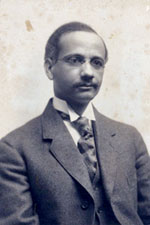
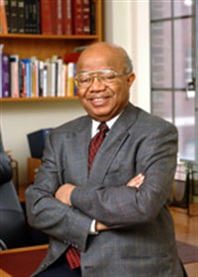
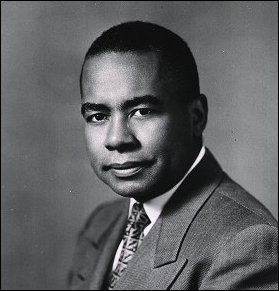
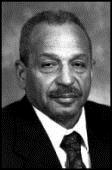
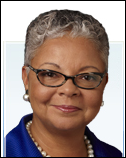
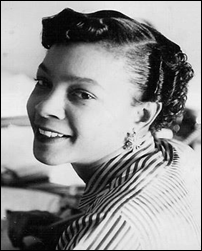
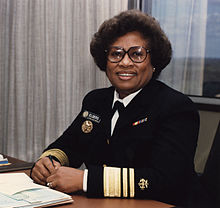

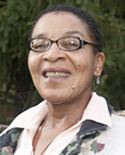






this page